The Merrimack Watershed: What You Need to Know
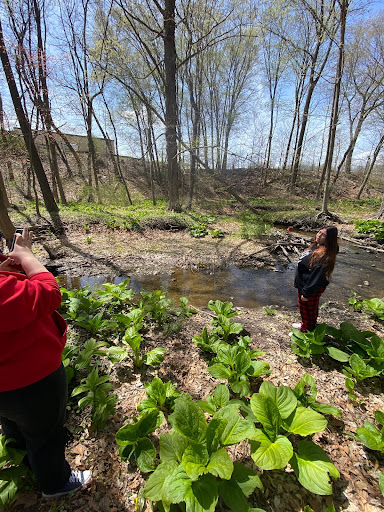
Photo Source: Emily Jones
June 8, 2023
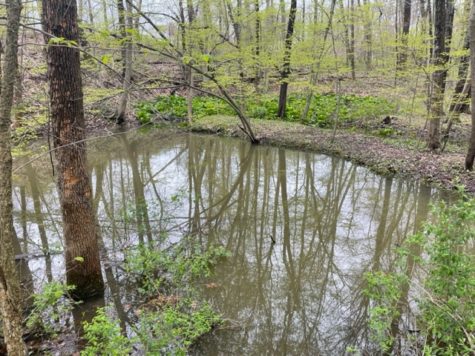
Many of the classes here at PRMHS focus on environmental learning and research within the coursework. One of these classes is Freshwater Ecology, a class that places an emphasis on watersheds. Not many people know what the function of a watershed is, or even what a watershed is. However, despite this gap in understanding, it’s important to learn about watersheds and their significance to our environment, lives, communities, and economies.
So, what is a watershed, and, why is it important?
A watershed is an area of land that separates water from flowing into different rivers, streams, and oceans. Watersheds provide many various benefits to the environment, society, and economy in which they lie.
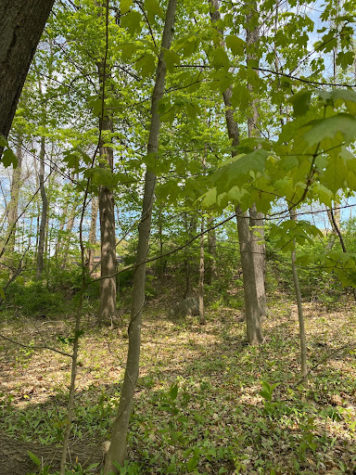
Some of these benefits include…
- Recreation opportunities like kayaking, fishing, tubing, etc.
- Habitat for living aquatic organisms
- Drinking water sources
- Ecosystem connections
- They help store and filter water
When it comes to the economy, healthy watersheds reduce the cost of many things including wastewater treatment and the cost of the plants, flood mitigation costs, increased property values, and increased job opportunities and revenues.
When considering the local communities, healthy watersheds allow for more recreational usage of the waters, increased value when it comes to tourism, agriculture, forestry, and mining, as well as an increase in native animal species that keep the ecosystems running.
Not all watersheds have the same shape and size, the size of a watershed can be defined by Hydrologic Unit Codes (HUC). HUC is a land classification system based on surface hydrologic features. For example, the Merrimack watershed, the watershed in which Pentucket lies, has a HUC code of 01070002, which is determined by the regions, sub-regions, accounting units, and cataloging units.

As stated previously, the Pentucket community lies within the Merrimack River watershed. The river begins in central NH and drifts 115 miles south of the Atlantic Ocean in Newburyport MA. The Merrimack River is the fourth largest River in New England, comprising approximately 200 counties with almost 2.6 million people.
The river provides water to over 500,000 people in Massachusetts communities, Including Lowell, Haverhill, Groveland, Methuen, Andover, Merrimac, West Newbury, Amesbury, Newburyport, Tewksbury, and Lawrence. The river also provides water to other communities in Nashua.
To collect proper water quality data, the Merrimack River watershed council reports data at sites along the main stem of the Merrimack River, Manchester, NH, and Newburyport to Salisbury, MA. The council has made bacterial modding for each MRWC site to find any results of E.Coli. In 2021, MRWC recorded one of the sites West Newbury – Ferry Park to discover its PH levels. The PH from that year have all stayed in between the blue area which indicates the water is safe for aquatic organisms.

E.Coli is not the only disease the MRWC monitors, they also search for Enterococcus Concentration. Enterococci are bacteria that live in the intestinal tracts of warm-blooded animals. They are also found in high concentrations in human feces. One of the
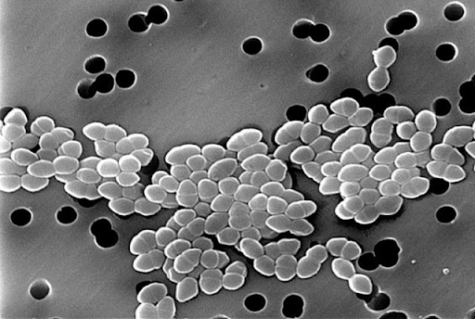
most common types of people who get sick from the bacteria are swimmers. The Enterococcus bacteria can cause diseases in the skin, eyes, and respiratory tract. A surplus amount of fecal bacteria in the water can cause beach closures, swimming or boating bans, and fishing or shellfishing closures. In order to protect any sources of fecal bacteria from flowing into our watersheds, wastewater plants, leaking septic systems, and sewage discharge help indicate whether or not our water is safe enough to drink.
Everything that flows into the local Merrimack watershed ends up in the much larger Gulf of Maine watershed, which is the gulf on the northeastern coast of the United States that includes waters from 60 different rivers. Thus, it is important to be mindful of what we put into the Merrimack watershed, because, even if it is a tiny piece of trash or a large spill of waste, it will end up impacting the lives of millions of humans and animals.
So, how can you help?
There are many different ways that you can alter details in your daily routine that will help better and benefit the environment and your local watershed. Some methods include…
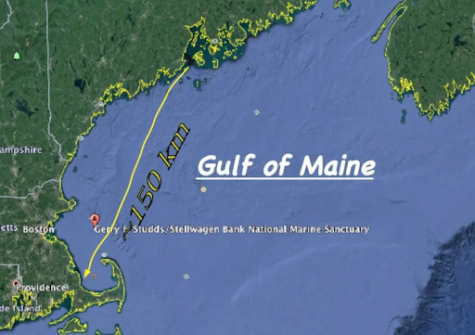
- Conserving as much water as you can every day: Take shorter showers, fix leaks & turn off the water when you’re not using it
- Reducing your use of single-use plastics: instead of using single-use water bottles, opt for reusable ones.
- Picking up after your dog, and putting the waste in the toilet or the trash.
- Using permeable surfaces like wood, brick, or gravel for decks & walkways, allowing rain to soak in rather than run off
- Avoiding pouring toxic household chemicals down the drain
- Having plants that require little to no watering, fertilizer, or pesticides
- Never over-apply fertilizers. Try organic or slow-release fertilizers instead.
- Trying to recycle waste in a compost pile
- Driving as little as you can. Try walking or biking for shorter distances because, believe it or not, many pollutants in our waters come from car exhausts and car leaks.
On a community level, you could…
- Get involved with Watershed nonprofits such as the MRWC
- Organize a clean-up group
- Talk to family and friends about watershed issues and how they can help
- Show people how easy it is to be mindful of your waste
- Work with local schools to educate children on the local environment
Of course, there are a multitude of other ways that you can change minute habits that will benefit not only yourself but your watershed and environment as well. However, it may be easier to begin on a smaller, personal level, then progress into involving yourself in community efforts. But, it’s truly up to you!
To Conclude…
There are many people who don’t really know what a watershed is or understand its importance. However, it is most crucial to the environment, economy, and community that people educate themselves and others on both the current status of the watershed and how it can be bettered by our communities. Pentucket’s specific watershed, the Merrimack watershed, is part of the much larger Gulf of Maine watershed. Due to this, it is crucial that people become aware of their waste and overconsumption of things like water, electricity, and plastic; all of which impact our environment and watershed negatively. Watersheds serve an extremely important role to wildlife, human society, the economy, and the environment, as without them, everything we know to be true would be drastically altered.

Lizzy Hayes • May 31, 2024 at 10:27 am
I was happy to learn more about watersheds because they are an environmental concern that is often ignored. This article has taught me a lot about ecosystems, riparian zones, and watersheds. This has been very useful in providing additional information to keep our watershed clean and safe for everyone. It provided fresh information that I was unaware of before, and I felt it was really nicely written. The Merrimack Watershed also helped me to understand how I might contribute.
Colyn • Apr 10, 2024 at 2:02 pm
I am glad that I read this, I learned a lot about what not to do and how I can help.
Clara Cavallini • Jan 22, 2024 at 2:01 pm
I think this article was very well written and shared new things that I had never heard of before. I have never heard of the Merrimack Watershed before and this article made me realize what I can do to help. The research put into the article helps the readers understand the situation better and helps inform the readers about the situation.
Laken Graham • Jan 17, 2024 at 8:36 pm
I found this article very informative and detailed. It offers a comprehensive and all-encompassing explanation of the importance of watersheds to everyday life. Watersheds are an environmental topic that often goes overlooked, so I was glad to learn more about this topic. The authors clearly did substantial research which made this article so enjoyable and educational.
lacie baldini • Jan 17, 2024 at 7:26 pm
Throughout my first semester of Junior year I have learned much about Watersheds, Riparian Zones, and ecosystems, and found this article to be extremely helpful in including others to help keep our watershed safe and clean for all. This article not only showed what an unhealthy watershed looks like but also a healthy watershed looks like and how we can all take a step forward in helping our community.
Lacie Baldini • Jan 17, 2024 at 7:17 pm
Throughout my first semester of Junior year I have learned much about watersheds, riparian zones, ecosystems etc and I feel this article was well written and easy to understand. I found it very mindful of the writers to explain ways for many to help keep our ecosystems clean, and also shows what exactly a healthy watershed looks like.
jackson • Dec 22, 2023 at 7:47 am
Wow! Amazing article!